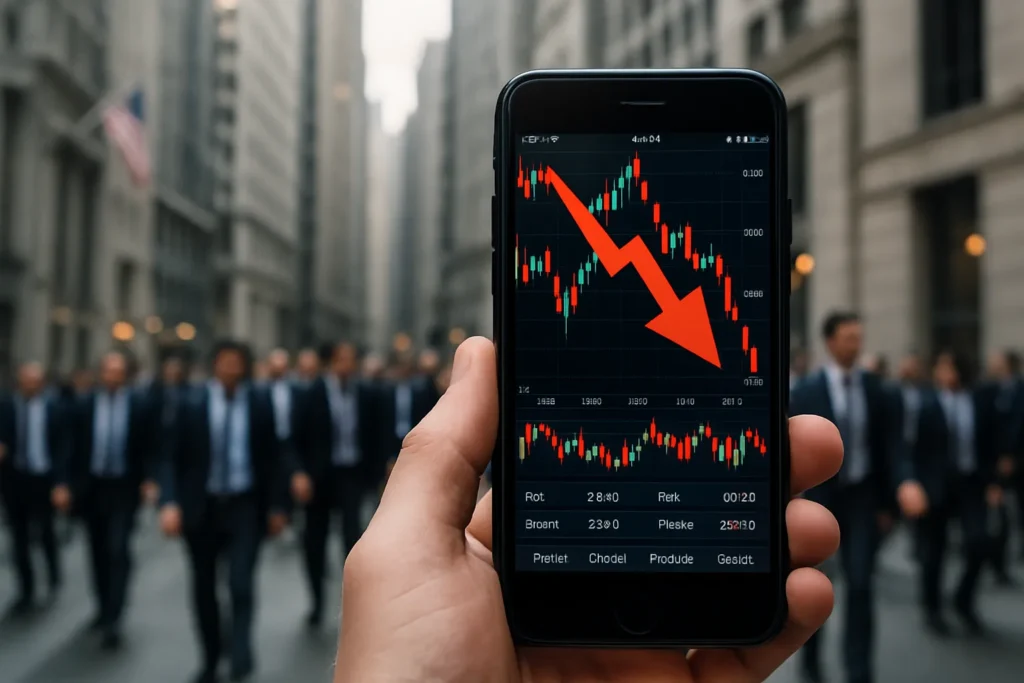Stunning Reversals on Wall Street: The Party’s Over—For Now
Bright lights, fast deals, and generous year-end bonuses have long defined Wall Street’s marathon of profit and prestige. Yet, as 2025 approaches, the script is flipping—and not in the bankers’ favor. The average bonus for New York City’s securities industry catapulted to $244,700 in 2024, an eye-watering 31.5% increase over the previous year, signaling triumph after pandemic malaise. But nothing on Wall Street stays golden for long. This year, projections by compensation consultancy Johnson Associates paint a sharper, more sobering picture: bonuses could fall by 10%, with investment bankers and dealmakers facing cuts as severe as 20%—wipeouts not seen since the financial crisis era. What happened between last winter’s champagne toasts and this summer’s anxiety-laced meetings?
At the heart of this about-face: mounting economic turbulence, driven largely by Trump-era tariff policies and escalating geopolitical tensions. As Alan Johnson, managing director of Johnson Associates, put it bluntly, the bonus pain is “self-inflicted.” Republican trade war posturing, designed to squeeze perceived global rivals, has instead injected paralyzing uncertainty into the arteries of American finance. IPOs freeze, mergers stall, and cautious CEOs shy away from dealmaking when future costs and supply chains hinge on the next presidential tweet.
Beyond that, compensation isn’t just a Wall Street concern. Each bonus season triggers a ripple effect for the New York real estate market, luxury retail, city tax receipts, and, yes—the increasingly frayed social fabric between ultra-rich bankers and ordinary workers. When bonuses rise, city coffers swell. When they fall, city budgets, philanthropic donations, and countless local jobs feel the squeeze. Is it any wonder that what seems like an obscure bonus figure actually shapes urban destinies from Park Avenue to Queens?
Trade War Fallout: Unpacking the Conservative Policy Mistake
What’s driving this high-stakes gloom isn’t a mystery to anyone watching Capitol Hill. A closer look reveals that the “tariff chaos” cited by Johnson Associates isn’t some abstract market risk—it’s the direct result of conservative trade brinkmanship and an underappreciation for global economic complexity. Tariff threats, actual fee hikes, and the drip of new restrictions across major economies have not, as promised, delivered a boom in U.S. jobs or a trade balance renaissance. What they have delivered is uncertainty—the mortal enemy of big-ticket corporate transactions.
Deal teams across Wall Street report that clients are stalling on everything from monumental mergers to routine financing, scared off by the prospect of sudden cost increases or retaliation from trading partners. The American merger and acquisition market has slumped to levels not seen since the dot-com bubble burst, and global transaction volume sits at a two-decade low. Harvard economist Laura Tyson observes, “When political headlines change the ground rules every month, prudent executives choose delay over risk.” It’s a lesson that Republican policymakers would do well to revisit, especially as the specter of a second Trump administration looms.
As traditional asset management and hedge fund bonuses are expected to tumble 5% to 10%—mainly from performance woes, active equity outflows, and relentless fee pressure—the larger story is one of confidence eroding steadily away from America’s financial centers. Fallout is especially severe among smaller and midsize funds, often unrecognized outside finance circles but vital engines for local economies and middle-class professional jobs. Even as the mega-funds and multistrategy giants leverage diversification and creative products to ride out the storm, the collateral damage ripples outward.
“The compensation declines we’re seeing now are not accidents of fate—they’re the price of policy decisions made in Washington without regard for real-world consequences.” — Alan Johnson, Johnson Associates
Some voices on the right argue that short-term pain is a necessary condition for political leverage abroad. Yet the lived reality in New York, Chicago, and everywhere finance powers city budgets, shows a starkly different equation: the costs are borne locally, by workers and communities, while the benefits—if they arrive—remain distant and theoretical.
Winners, Losers, and the Race to Adapt
Not every desk on Wall Street is preparing for leaner times. In perhaps the only silver lining cited by Johnson Associates, traders on equity and fixed income desks may see bonuses rise by as much as 25%, surfing the waves of market volatility brought by policy drama and global jitters. Volatility breeds trading volume, and where deals dry up, speculation can still fill the coffers—for now.
Private credit professionals are another bright spot, clinging to flat compensation thanks to ongoing demand for liquidity and a fierce talent battle. Yet, these isolated exceptions underscore the underlying problem: dependency on unpredictable global currents and Washington’s next move.
Larger trends are unmistakable. “Deal drought” is reshaping the culture of finance: shrinking teams, job cuts, and reduced upward mobility for younger professionals. The robust New York bonus scene—long an engine for upward social mobility—may be fading into memory if policymakers fail to deliver lasting stability.
What’s the better path forward? Progressive economic thinkers, alongside international trade experts, argue for a fundamental shift away from zero-sum policies and toward constructive international engagement and clear, rules-based commerce that provides certainty and fosters shared prosperity. Instead of weaponizing uncertainty, Washington can return to a tradition of pragmatic negotiation and responsible economic stewardship. The lesson of the past two years is as much about moral responsibility as it is about dollar signs: policies that destabilize markets don’t simply go after Wall Street—they ricochet across Main Street and every community in between.
This moment calls for more than posturing. It demands bipartisan solutions that respect both American workers and our interconnected global reality. If Washington can muster the courage to end the era of trade war drama, those champagne toasts could soon return—not just for a privileged few, but for an economy willing to bet on stability, fairness, and the promise of shared growth.

